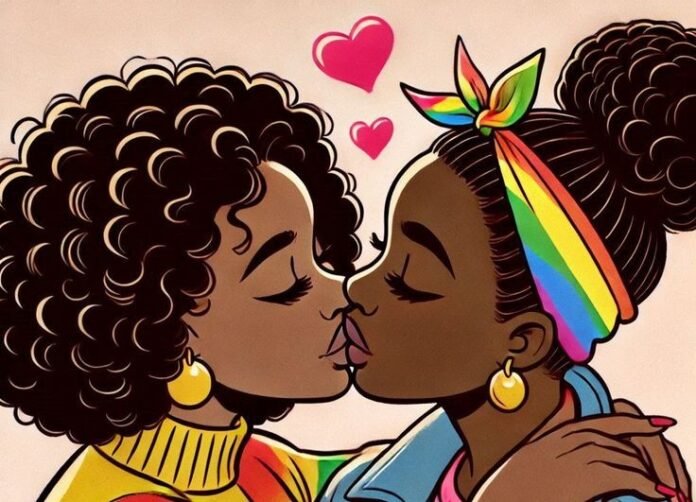By Tamba Eric Sourie
A viral video showing two women exchanging wedding vows in Waterloo, just outside Freetown, has ignited heated debate across Sierra Leone. The event, which reportedly took place yesterday, has stirred a cultural storm in a society where marriage is traditionally defined as a union between a man and a woman.
The ceremony, said to have been mediated by a religious officiant, has attracted widespread condemnation on social media. Some Sierra Leoneans have gone as far as demanding punishment for the officiant and those involved in planning the event. Others expressed shock and disbelief, describing the marriage as “strange” and “an affront to Sierra Leonean culture.”
Yet, beneath the outrage lies an undeniable reality: the practice of same-sex relationships, though highly stigmatized, is gradually gaining visibility, especially among young women and even some high-profile individuals.
Sierra Leone is a deeply conservative society where religion and tradition strongly shape moral views. Marriage is largely viewed as an institution meant to unite a man and a woman for procreation and family stability. As such, homosexuality is widely considered taboo and is often met with harsh criticism or outright hostility.
However, social analysts note that despite cultural resistance, same-sex relationships are not new in Sierra Leone. What is changing is their visibility. Younger generations, influenced by global exposure through social media, travel, and entertainment, are increasingly open to experimenting with identities and orientations outside the cultural norm.
“Many young women are coming to terms with who they are, but society is not ready to accept them,” said a human rights activist who asked not to be named. “This wedding may shock people, but it also signals that there are Sierra Leoneans who no longer want to remain hidden.”
Although the practice remains underground for fear of reprisals, same-sex relationships are more common than many realize. In urban areas like Freetown, and even in provincial cities, young women discreetly engage in relationships with one another. Some are university students, professionals, and in some cases, married women seeking emotional connections outside traditional marriages.
The fear of public exposure is real. Those suspected of being in same-sex relationships risk ostracism, job loss, and even violence. This forces many into secrecy, creating a hidden community where individuals live double lives.
The viral Waterloo wedding has exposed the depth of hostility that still surrounds same-sex relationships in Sierra Leone. The calls for punishment of the religious officiant highlight the risks faced not only by LGBTQ+ individuals but also by anyone perceived as enabling them.
Religious and cultural leaders are expected to make strong statements in the coming days, reinforcing traditional norms. At the same time, human rights groups may use the incident to draw attention to the challenges faced by LGBTQ+ Sierra Leoneans.
While Sierra Leonean society may not be ready to openly embrace same-sex unions, this incident has pushed the conversation into the public sphere in a way that cannot be ignored. The backlash underscores deep-rooted cultural resistance, but the mere fact that such a wedding occurred shows that the reality of same-sex relationships is no longer confined to whispers and secrecy.
The coming weeks may see intensified debates about morality, tradition, and human rights in Sierra Leone. What remains clear is that, despite opposition, the practice is quietly gaining ground.
As one young Freetown resident put it on social media: “You may not like it, but it is happening, and it will not stop.”








